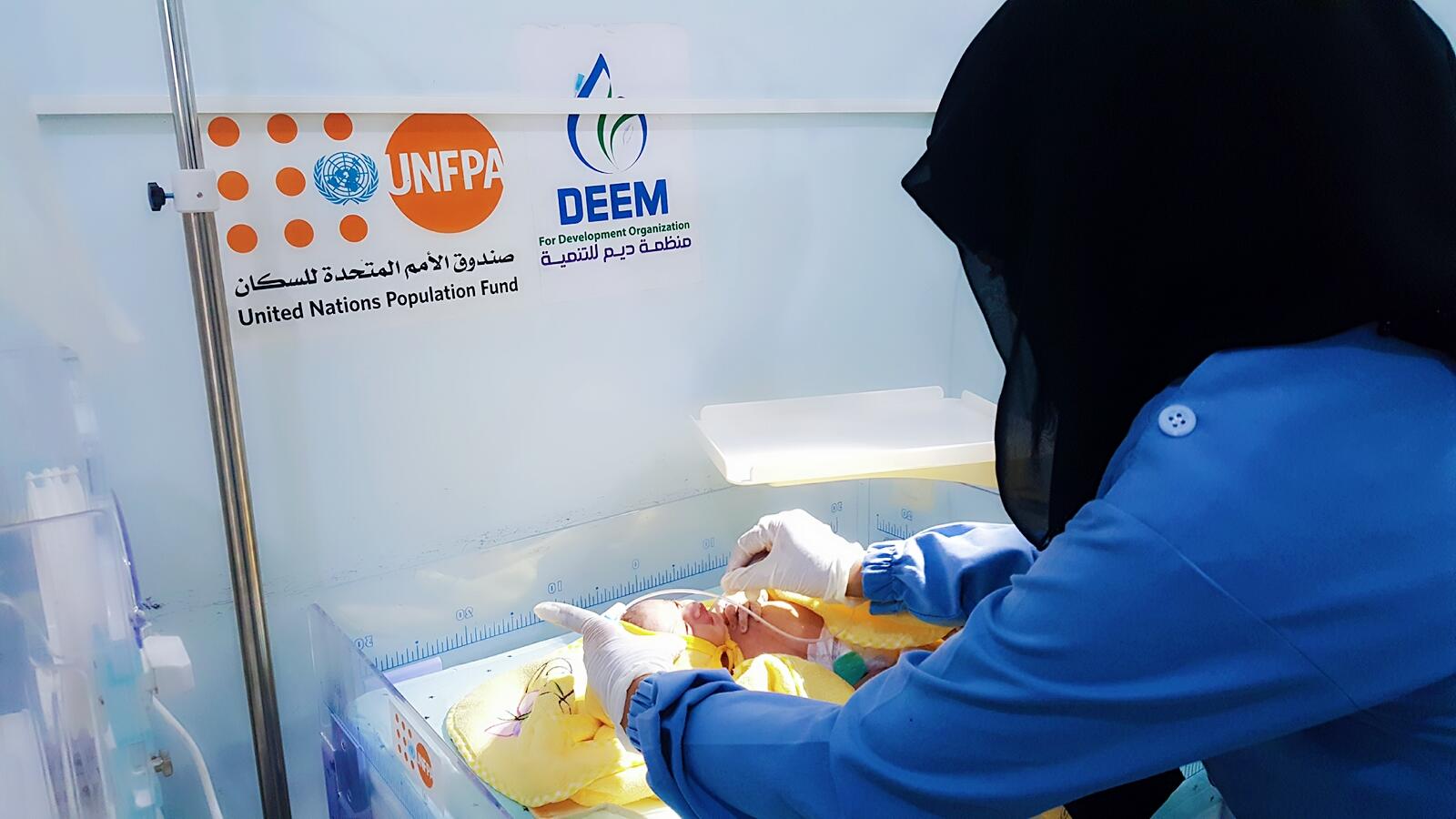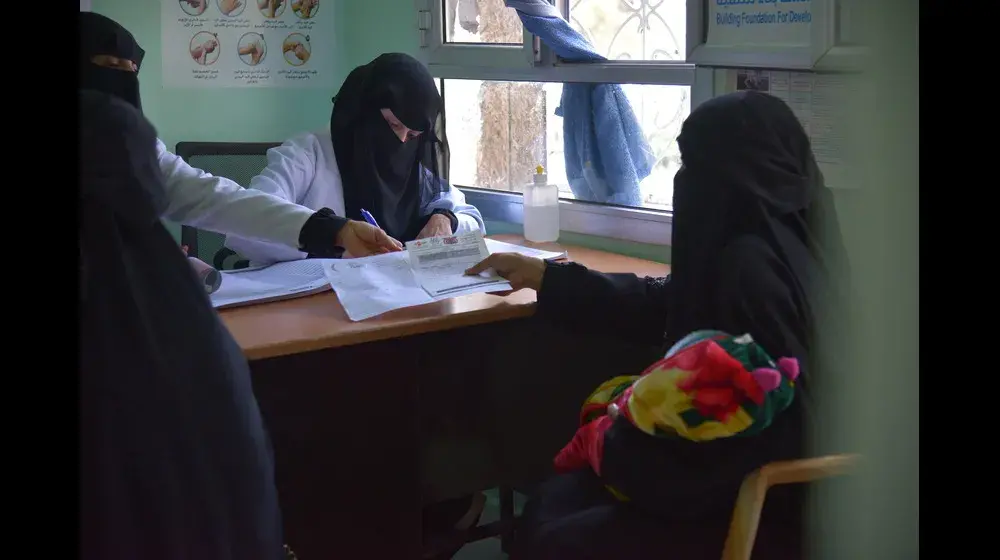NEW YORK, USA, 6 May 2020 - More than 48,000 women could die from complications of pregnancy and childbirth in Yemen, the world’s worst humanitarian crisis, due to severe funding shortages and the possible closure of reproductive health facilities, amidst rising risks posed by COVID-19. To save lives, UNFPA is calling for urgent funding of $59 million to provide lifesaving reproductive healthcare and women’s protection services until the end of 2020. An additional $24 million is needed for the COVID-19 response to protect health workers and women and girls accessing reproductive health services in the conflict-affected country.
“If lifesaving reproductive health services are stopped it will have catastrophic consequences for women and girls in Yemen - placing them at even greater risk,” said Dr. Natalia Kanem, UNFPA Executive Director. “Yemen urgently needs funding to keep health facilities open to protect the health and safety of women and girls.”
As it stands now, nearly half of all health facilities in Yemen are not functioning or only partially functioning. Only 20 percent of health facilities provide maternal and child health services due to staff shortages, lack of supplies, inability to meet operational costs, or damage due to the conflict. Equipment and medical supplies are inadequate or obsolete. Health workers have not been paid, or have only been irregularly paid, in more than two years.
Last week, UNFPA released data saying that if the COVID-19 pandemic is prolonged, the number of women unable to access family planning, facing unintended pregnancies, gender-based violence and other harmful practices could skyrocket by millions of cases in the months ahead. This would be devastating for Yemen.
A severe funding shortage will force UNFPA to halt the provision of lifesaving reproductive health services in 140 health facilities in Yemen. If these facilities close, an estimated 320,000 pregnant women will be cut off from reproductive health services and more than 48,000 women could die of emergency obstetric complications.
The provision of funding to UNFPA will allow reproductive health services and facilities to continue to provide lifesaving services.
- A woman dies every 2 hours giving life in Yemen.
- For every woman who dies during childbirth, another 20 suffer injuries, infections or disabilities that are preventable.
- 1 in 3 women would like to use family planning but are not using it.
- 6 out of 10 births take place without a skilled birth attendant.
- A woman in Yemen has a 1 in 60 chance of dying during pregnancy or childbirth.
- More than 1 million pregnant and lactating mothers in Yemen are currently malnourished.
- 4 out of 10 women do not receive antenatal care from a skilled provider.
For enquiries on Yemen and UNFPA’s Humanitarian Programme, please contact:
Ann Erb-Leoncavallo: +1 917 860 7256: leoncavallo@unfpa.org
For media and interview enquiries, please contact:
Malene Arboe-Rasmussen: +45 61661291: arboe-rasmussen@unfpa.org
Lankani Sikurajapathy: +947 734 11614: sikurajapathy@unfpa.org
Eddie Wright: +1 917 8312074: ewright@unfpa.org




